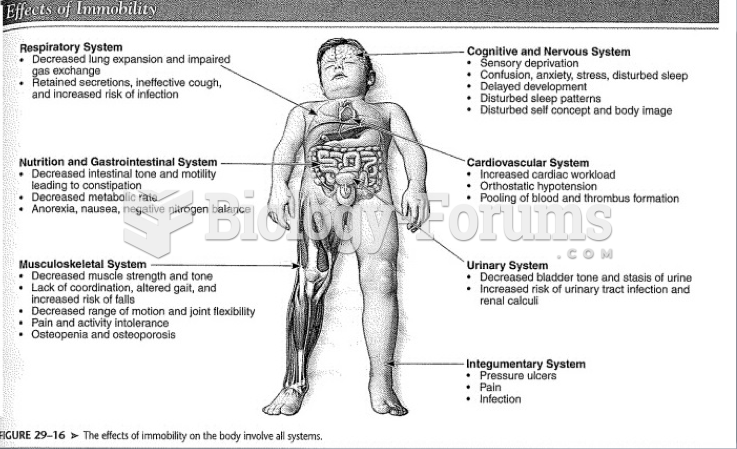|
|
|
Approximately 500,000 babies are born each year in the United States to teenage mothers.
Although the Roman numeral for the number 4 has always been taught to have been "IV," according to historians, the ancient Romans probably used "IIII" most of the time. This is partially backed up by the fact that early grandfather clocks displayed IIII for the number 4 instead of IV. Early clockmakers apparently thought that the IIII balanced out the VIII (used for the number 8) on the clock face and that it just looked better.
Astigmatism is the most common vision problem. It may accompany nearsightedness or farsightedness. It is usually caused by an irregularly shaped cornea, but sometimes it is the result of an irregularly shaped lens. Either type can be corrected by eyeglasses, contact lenses, or refractive surgery.
On average, the stomach produces 2 L of hydrochloric acid per day.
The top 10 most important tips that will help you grow old gracefully include (1) quit smoking, (2) keep your weight down, (3) take supplements, (4) skip a meal each day or fast 1 day per week, (5) get a pet, (6) get medical help for chronic pain, (7) walk regularly, (8) reduce arguments, (9) put live plants in your living space, and (10) do some weight training.
 (A) The name and shape of the adult teeth. These teeth represent those found in the right side of th
(A) The name and shape of the adult teeth. These teeth represent those found in the right side of th
 Most air filter housings are located on the side of the engine compartment and use flexible rubber ...
Most air filter housings are located on the side of the engine compartment and use flexible rubber ...





